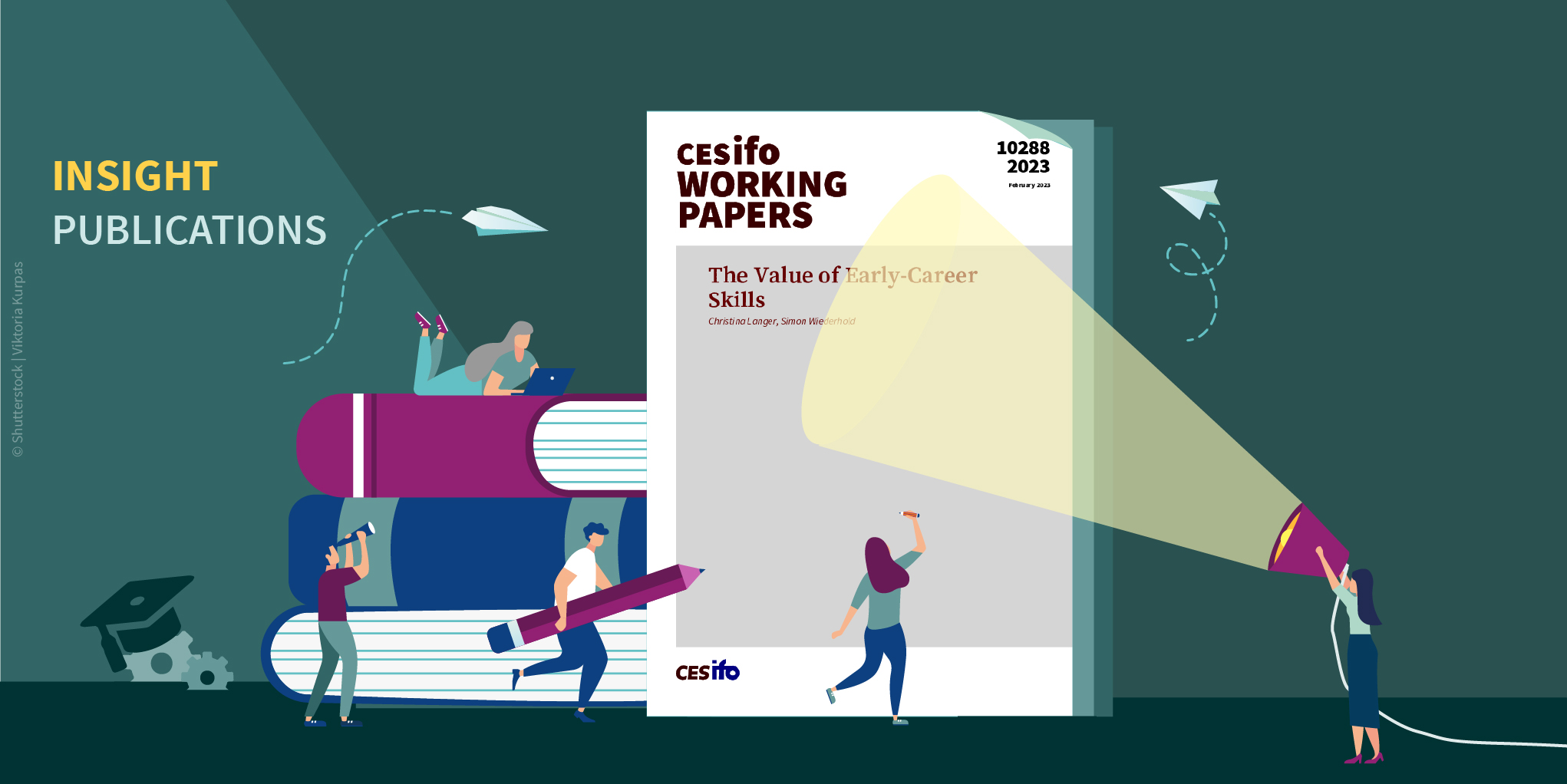Early-Bird Advantage
At first sight it is a bit of a paradox. On the one hand, it has long been clear that the skills you acquire, say, at university no longer will see you through to the end of your career life: you have to reinvent yourself several times along the way just to stay current. On the other hand, the skills that you learn early in your career will boost your earnings throughout your entire working life.
This suggests that vocational education, which typically imparts skills early in a person's career, can have a long-lasting positive impact.
A team of KUEI researchers, Christina Langer and Simon Wiederhold, who also are a major pillar of, well, Pillars, the EU Horizons project focused on inclusive labor markets, showed that this is exactly the case.
To do this, they identified the more than 13,000 narrowly defined skills that are acquired during apprenticeships, which are grouped into six broad categories: cognitive, social, digital, manual, management, and administrative skills (luckily, skills requirements in apprenticeship plans are standardized nationwide in Germany). They then merged this dataset with administrative data covering almost three decades to investigate the economic value of workers’ early career skills over their working life.
They found that workers who start their labor market career with higher cognitive, social, or digital skills earn significantly higher wages over long-run horizons. The effects of these skills, however, vary somewhat: 16-20 years after apprenticeship completion, one additional month of learning cognitive skills during apprenticeship is associated with 1.3% higher wages. Returns to social and digital skills, in turn, are even juicier, at 1.5% and 2.1%, respectively.
These estimates equate to 16%-27% of the earnings benefits derived from a full year of schooling, showing the economic value of skills acquired early in the career life.
This is not a fluke. The researchers submitted their results to stringent tests, for instance controlling for whether these higher returns might simply be brought about by selecting into apprenticeships, or just reflect what workers would earn anyway from their occupations.
What drives these higher returns? For one thing, the Pillars team found evidence of skill complementarities: workers who simultaneously acquire cognitive and social skills during apprenticeship are particularly valuable on the labor market. This enables them to sustain this pay advantage throughout their careers.
For another, when our research team linked their skills data with job vacancy data, they found evidence of skill-technology complementarities: unsurprisingly, workers with higher cognitive skills earn higher wages in regions in which firms’ production technology is more likely to require such skills.
Linked to this, they found that the benefits derived from cognitive, and, in particular, social and digital skills, have risen substantially over the past 30 years, suggesting technology as a major driving force behind the increased economic value of these skills.
This all points to the value of labor market returns provided by vocational education—and it may help to project the impact of technological change on the prospects of workers possessing different types of skills, as well as helping to determine the feasibility of reskilling.
Given that this study was conducted using German data, do the findings say anything about the country’s internationally praised apprenticeship system? Indeed they do. In fact, with the German system’s success in reducing youth unemployment, increasing workforce quality, and providing in-demand skills, the researchers say Germany could well serve as a role model—a notion that has not gone unnoticed: several countries are busily trying to set up apprenticeship systems modelled after the German one.
Thus, at the very least, our team’s results provide guidance on how to design future vocational training curricula to impart such early-bird skills.
So, in the end, there is no paradox. Acquiring early-career skills and having to reinvent yourself professionally over your working life actually go hand in hand, especially during these fast-changing times. Acquiring those early skills, however, definitely gives you a leg-up.
